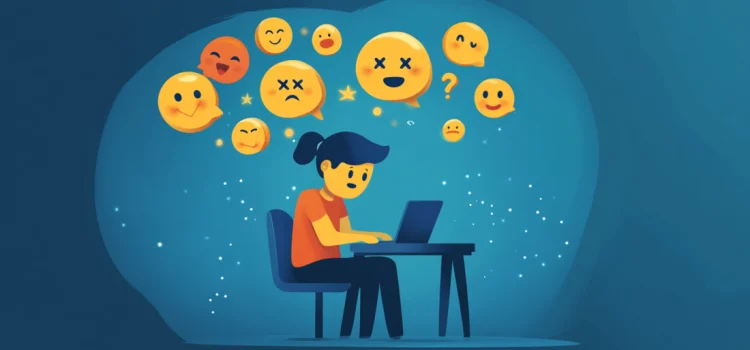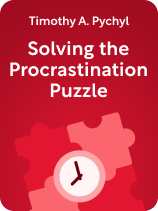

This article is an excerpt from the Shortform book guide to "Solving the Procrastination Puzzle" by Timothy A. Pychyl. Shortform has the world's best summaries and analyses of books you should be reading.
Like this article? Sign up for a free trial here.
What’s the real meaning of procrastination? What are some common misconceptions about procrastination?
In Solving the Procrastination Puzzle, Timothy A. Pychyl explains what procrastination is and what procrastination isn’t. More specifically, he addresses the idea that we procrastinate because we’re bad at managing our time.
Keep reading to learn why procrastination originates from unregulated emotions, not bad time management.
Procrastination Isn’t About Time, But Emotions
What is the real meaning of procrastination? According to Pychyl, procrastination is a choice to postpone a task you need to complete, even though you know that negative consequences will follow. Pychyl explains that when you choose to procrastinate, you deliberately make a decision that sabotages your progress toward your goals. But your knowledge that there will be consequences doesn’t make the habit any easier to overcome. That’s because procrastination isn’t rational: Instead, it’s driven by emotions.
You’ve likely heard that procrastination results from a failure of the cognitive capacity psychologists call self-regulation: the ability to manage your emotions, attention, and behavior so you can work toward your goals or act according to your values. Pychyl contends that procrastination is specifically a failure of emotion regulation. He explains that you procrastinate because you want to feel positive emotions, and you achieve that by avoiding tasks that make you feel negative emotions about your work or yourself.
We associate all kinds of negative emotions with the tasks we procrastinate on. For example, you might put off reading a proposal at work because you anticipate being bored by it. Or you might delay assembling the desk your partner asked you to build because you’re worried you’ll struggle with the instructions—being defeated by an Ikea desk would be pretty humiliating.
By avoiding negative emotions, we get to feel better temporarily. However, as Pychyl points out, we typically feel bad about procrastinating, so we don’t get to opt out of negative emotions altogether. Nonetheless, we choose to “feel good” for the moment by both avoiding an unpleasant task and imagining ourselves accomplishing that task some other time—like “later” or “tomorrow.” The problem is that this doesn’t happen just once: Procrastination becomes a habit, one prompted by the thoughts or feelings we associate with a task.
Not Every Delay Is Caused by Procrastination
Before we dig further into what causes procrastination and how you can overcome it, Pychyl contends that it’s important to learn to tell the difference between procrastination and more productive kinds of delays that can temporarily impede your progress toward your goals. He points out that it’s sometimes necessary to put a task on the back burner, for all kinds of practical (and rational) reasons. To work toward your most important goals or fulfill the obligations of your most significant roles, you often have to put one task ahead of the other things on your agenda, handling the most important or most time-sensitive things first.
(Shortform note: Figuring out which tasks to prioritize is crucial to productivity. Just as reducing procrastination isn’t so much a problem of time management as of emotion regulation, experts say optimizing your productivity is less about managing your time and more about managing your attention. Psychologist and Originals author Adam Grant explains that when you choose what to prioritize, you shouldn’t just set aside a specific amount of time for a task. Instead, you should motivate yourself to spend whatever time the task takes by reminding yourself why it’s meaningful. That way, the task will hold your attention, and you can make the most productive use of your time—minimizing how long you have to delay the other tasks on your agenda.)
Prioritizing inevitably leads to putting off some tasks, but Pychyl emphasizes that’s not the same thing as procrastination. For example, you might have to push back a project at work to stay home with your child when they catch the flu. You’re delaying something you need to do, but you’re doing it to take care of something more important. Pychyl says these delays don’t qualify as procrastination. Procrastination only happens when we deliberately put off a task that we could (and should) begin right away. You can recognize procrastination because you’re not putting the task off for a rational reason: Instead, you don’t feel like getting started on it, so you defer it until “later” or “tomorrow.”
(Shortform note: Some delays are productive, as Pychyl explains. But some are procrastination in disguise: While your nervous system sometimes prompts you to put off a stressful task by doing nothing, other times, it pushes you to do everything except that task. This is productive procrastination: staying busy with tasks that distract you from crucial work. Some experts say you can use this tactic to move between projects as needed. But others say it’s best to build the habit of focusing on what matters most. An illustration of unproductive procrastination is the character of Max Fischer in the 1998 film Rushmore. Max spends so much time starting clubs, staging plays, and “saving” Latin classes that he neglects what he should be doing—his schoolwork—and gets expelled.)

———End of Preview———
Like what you just read? Read the rest of the world's best book summary and analysis of Timothy A. Pychyl's "Solving the Procrastination Puzzle" at Shortform.
Here's what you'll find in our full Solving the Procrastination Puzzle summary:
- The real reason why you procrastinate
- How procrastination undermines your ability to live a happy, healthy life
- Practical advice for changing your relationship with your most dreaded tasks






